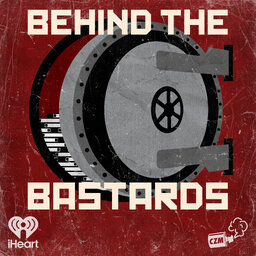Part One Joe Pyne: The Man Who Invented Right Wing Talk Radio
Robert is joined by Tom Reimann to discuss Joe Pyne.
FOOTNOTES:
- https://timeline.com/hot-seat-wally-george-edccf13491cf
- https://www.ocweekly.com/remembering-the-time-ocs-wacky-conservative-talk-show-host-wally-george-stood-up-to-white-supremacists/
- https://joeleisenberg.medium.com/exposed-donald-trump-is-wally-george-bcb2f2040c0f
- https://web.archive.org/web/20200226051215/https://www.latimes.com/archives/la-xpm-1992-07-11-ca-1344-story.html
- https://variety.com/2003/scene/people-news/wally-george-1117893638/
- https://www.ocweekly.com/here-lies-wally-george-6428079/
- https://www.washingtonpost.com/news/morning-mix/wp/2015/08/21/why-were-all-just-living-in-morton-downey-jr-s-talk-show-slime/?request-id=76a6a7b6-5e2f-4120-8982-74c4046cbff4&pml=1
- https://www.chicagotribune.com/entertainment/tv/ct-morton-downey-jr-documentary-20150817-story.html
- https://abcnews.go.com/Entertainment/story?id=108365&page=1
- https://www.cnn.com/2015/08/12/opinions/smerconish-morton-downey-era/index.html
- https://archive.is/mKfyB#selection-343.0-351.321
- https://www.smithsonianmag.com/history/joe-pyne-first-shock-jock-180963237/
- https://s3.amazonaws.com/files.saturdayeveningpost.com/uploads/reprints/Hate_Hour/index.html?X-Amz-Content-Sha256=UNSIGNED-PAYLOAD&X-Amz-Algorithm=AWS4-HMAC-SHA256&X-Amz-Credential=AKIAI3QGKNAHC7QBOIAA%2F20210921%2Fus-east-1%2Fs3%2Faws4_request&X-Amz-Date=20210921T071203Z&X-Amz-SignedHeaders=host&X-Amz-Expires=300&X-Amz-Signature=871e048df2cb9da18c7eaae72514a8270428fd10ce5f4d0846d270d1ad1a7ffd
- https://www.thebdr.net/joe-pyne-talk-radio-pioneer/
- https://www.history.com/this-day-in-history/a-media-controversy-ignites-over-the-case-of-tawana-brawley
- https://www.npr.org/sections/thetwo-way/2013/08/05/209194252/15-years-later-tawana-brawley-has-paid-1-percent-of-penalty
- https://www.kanw.com/post/racial-backdrop-tawana-brawley-case
Learn more about your ad-choices at https://www.iheartpodcastnetwork.com
In 1 playlist(s)
Behind the Bastards
There’s a reason the History Channel has produced hundreds of documentaries about Hitler but only a …Social links
Follow podcast
Recent clips

Part Four: Prince Mohammed Bin Salman: The Tyrant of Saudi Arabia
1:03:32

Part Three: Prince Mohammed Bin Salman: The Tyrant of Saudi Arabia
1:04:54

Part Two: Prince Mohammed Bin Salman: The Tyrant of Saudi Arabia
49:57
 Behind the Bastards
Behind the Bastards